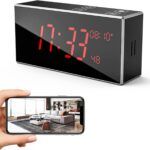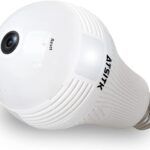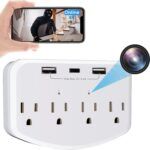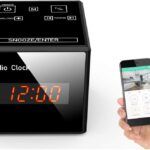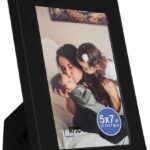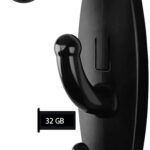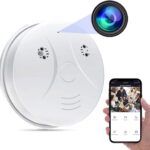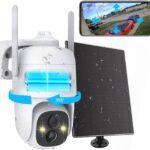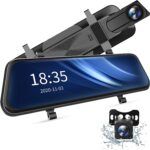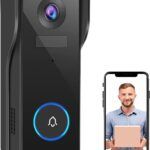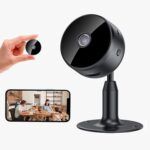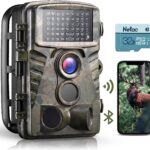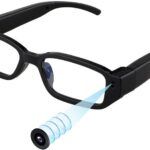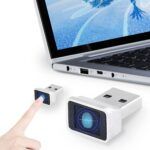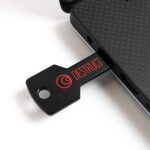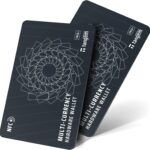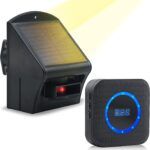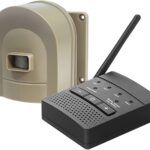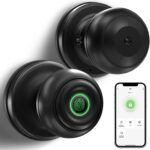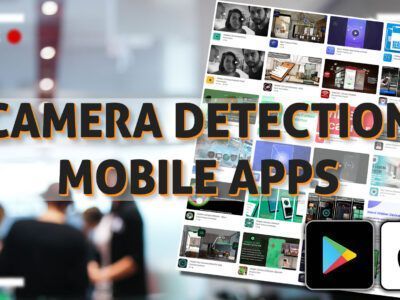We live in a world of constant surveillance, where our every step is tracked and logged. But, this doesn’t mean we should freely give out our personal data to anyone. Protecting yourself while traveling is especially important, as we are far more exposed to tracking and surveillance in unfamiliar environments.
While traveling for business or vacation, for many people safety is a top priority. You may consider worst-case scenarios like crime, theft or kidnappings, but there are other dangers lurking. Keeping your belongings and loved ones safe often requires knowledge of potential dangers and trust. But there are ways to track and surveil people and things you care about, and do it in a way that gives them peace of mind. Yourself included.
We’re about to give you some ideas on how to stay safe while traveling that you probably haven’t even considered yet. Let’s look at some risks, solutions, tips, devices, and other ways to keep yourself safer!
Use bug detectors to find hidden surveillance devices
Sweeping your hotel room or rented apartment for hidden bugs is becoming the norm for many families. To ensure your privacy in a temporary living space, you can use a bug sweeper to detect hidden surveillance devices.
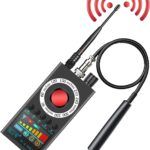 $69.89
$69.89The K19+ RF Detector & Camera Finder is an advanced and professional device that incorporates multiple detection modes in one compact and portable...
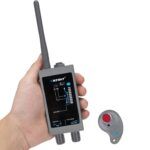 $129.99
$129.99The KNIGHT KT9000 hidden camera detector is a must-have tool for anyone who wants to ensure the privacy and security of their personal and professiona...
These spy device detectors are by no means foolproof, however. But they can provide you with a basic sense of security and ensure your Airbnb or hotel room is free of any cameras or listening devices.
Password-protect your devices
Your phone is a window to your life. Ensure you password-protect it to prevent unauthorized access to your contacts, messages and photos. This can be very convenient nowadays as you can use your fingerprints or simple patterns for basic device security, without having to remember complex passwords.
You can even consider a biometric fingerprint reader to further secure your tablets or laptop computers. These devices provide convenient access and unlocking, and will prevent most people from being able to snoop your private data.
For even greater data security, you can consider encrypted drives.
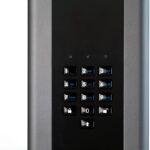
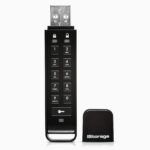
These will ensure your important work documents or family photos can’t be accessed by anyone.
Use USB data blockers
If you’re not concerned about plugging in your mobile phone into a public charger, you should be. This is becoming so widespread that even FBI is warning people about this issue. Using a public phone charging station can expose your mobile device to data theft and malware, and USB data blockers are a cheap way to 100% prevent this.
These data blockers simply lack the data transfer pin inside the device, meaning it’s physically impossible to transfer any data while your phone is connected through the data blocker. Charging will function normally, allowing you to use any public charging without worrying about your device security.
RFID Blockers for bank cards
Contactless payments with debit and credit cards have become the norm. But, with new technology come new dangers. Anyone with a “skimmer” device can read and clone your bank card if they get in close proximity, opening you to potential financial or identity theft issues. These can get exacerbated during vacation, especially if traveling abroad.
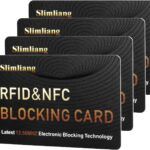 $9.80
$9.80The Slimliang RFID & NFC Blocking Card Protector offers a fuss-free solution for protecting your wallet or purse from electronic pickpocketing. Th...
Ticonn's Faraday Bag for Car Fobs is a must-have for car owners who want to protect their vehicles from theft. The bag is designed to provide complete...
Putting your bank cards into an RFID&NFC blocking sleeve (or into a faraday bag) will block any skimming device from trying to read and clone their data.
Use VPNs
Most people are aware of VPNs (Virtual Private Networks) by now. Many smartphone manufacturers and web browsers already include basic VPNs. These free VPN services generally have limited availability or bandwidth, but depending on your data usage they might be sufficient during a quick travel trip.
Essentially, if you’re using public WiFi networks to connect online, any website you visit and any data you send or receive can potentially get intercepted. Using a VPN encrypts your data and ensures anyone sniffing your wireless network won’t be able to access or see websites you’re browsing or data you’re transmitting.
Using a VPN is a basic and simple, but essential privacy step. It’s especially important if you’re sending confidential or private files or using online banking.
Use item trackers
RF (Radio Frequency) or Bluetooth item trackers are excellent for keeping track of your important belongings while traveling. You can use them to locate your keys, laptops, vehicles, backpacks, or luggage. RF generally have low range, but Bluetooth tracking can work practically globally through Apple’s Find My or similar services.
 $19.99
$19.99Introducing the ATUVOS Key Finder - the ultimate solution to keep track of your belongings. This multifunctional item finder pairs with Apple Find My ...
Introducing the Pebblebee Card Wallet Tracker, the ultimate device to track your essentials. Designed to fit into your wallet or any narrow space, thi...
PebbleBee Clip Keychain Bluetooth Tracker is a rechargeable item tracker designed to help you keep track of your belongings. Compatible with Apple Fin...
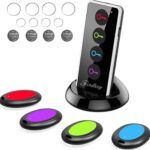 $18.98
$18.98Ldcx Wireless RF Item Finders are the perfect solution for people who tend to misplace their belongings. The set comes with one RF transmitter and fou...
These can make locating your suitcases at airports a breeze. Devices such as Atuvos Key Finder can even be great for keeping track of the location of your kids and ensure their safety and your sanity at all times.
Furthermore, you can use GPS trackers for worldwide tracking of your vehicles or belongings at any time.
Additionally, anyone traveling with pets can also understand the added stress. Using pet GPS trackers can ensure you never lose track of your pets, even while traveling internationally.
Tractive GPS Cat Tracker is the ultimate solution for cat owners who want to keep a close eye on their feline friends, even when they are not around. ...
Tractive GPS Dog Tracker is the ultimate device for keeping track of your furry friend's whereabouts and well-being. With an all-in-one dog GPS tracke...
Use hidden cameras
We of course have to mention hidden cameras as well. Renting a property has its risks, from nosy hotel staff to suspicious renters. Keeping a close watch on your belongings while you’re away from your temporary home can provide a greater sense of security and safety. These few hidden cameras are very suitable for hotels and rented rooms and will mostly go unnoticed.
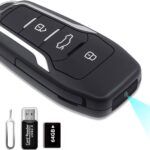



Take a look at our Hidden hotel cameras to find more products suitable for surveilling your temporary living arrangements.
Always be suspicious
Don’t expect anyone else to worry about your safety and privacy. You should always be mindful of many dangers of traveling. We outlined many ways to keep your items, luggage, pets or kids safe, but also ways to keep your data private.
There are always plenty of risks when traveling, but some of the tools, tips and products we mentioned can go a long way towards mitigating risks and keeping you worry-free.

